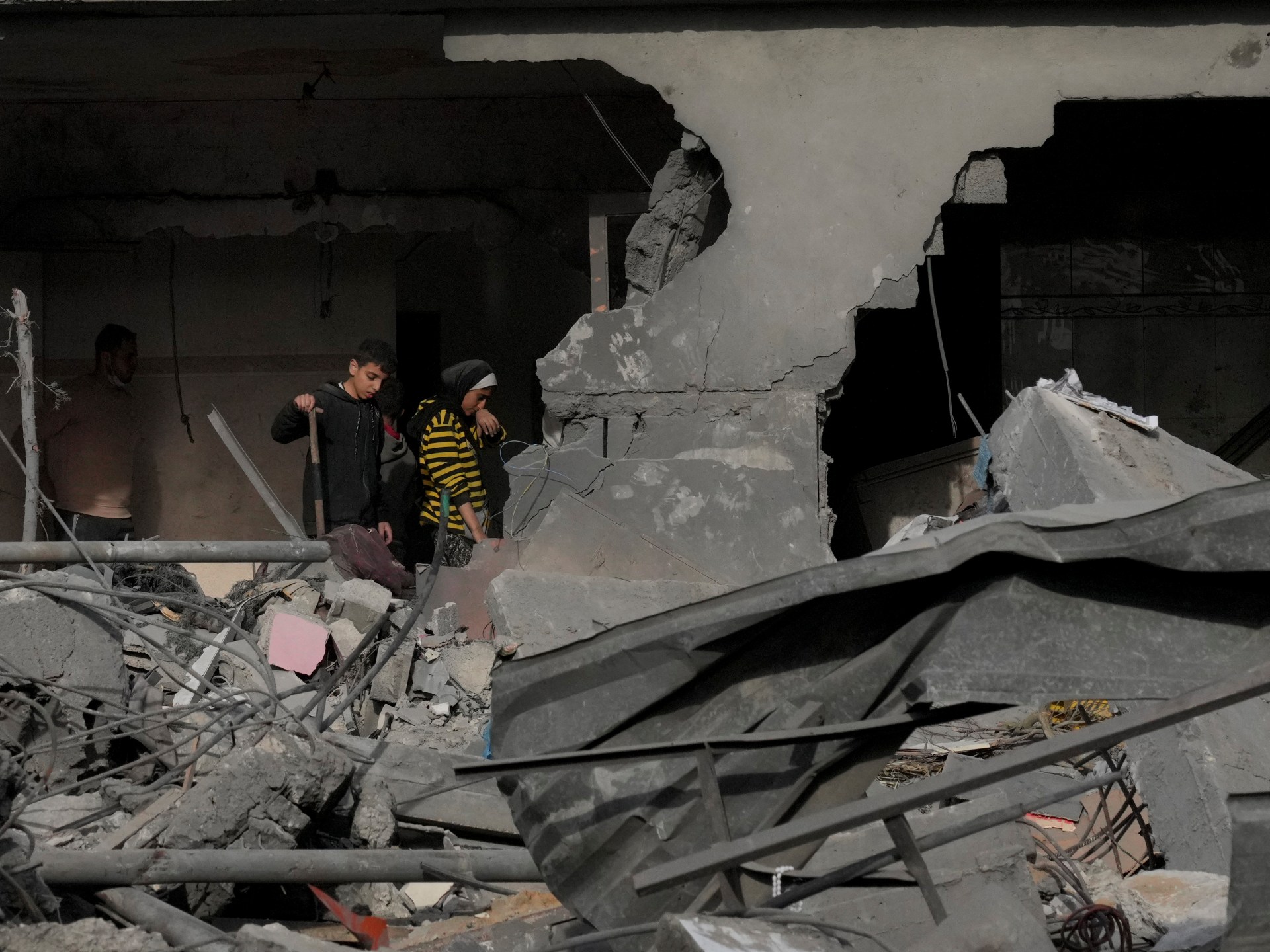
A gentle voice drifted into the dark room, lit only by the projection of a globe with the outline of Africa on a screen.
“Who said empires don’t exist anymore?” said the voice as dancers in European colonial-era garb slowly walked onto the stage, carrying what looked like crosses or swords. They hammered away at maps of Africa as if they wanted to divide the continent to their liking.
Over the next hour, the performance in Maputo, the capital of Mozambique, evolved into a frenetic dance of stomping and thrusting, the movements of warriors in battle, to the beat of thundering drums.
“You are such a liar that even when you lose you can still win,” declared a man standing quietly at the back of the stage, in what appeared to be a not-so-veiled reference to allegations that Mozambique’s ruling party had recently manipulated Local elections.
This man, Panaíbra Gabriel Canda, is arguably Mozambique’s most prolific and influential contemporary dancer and choreographer. And in many ways, this performance last month at the same venue in Maputo where he debuted his first work more than 25 years ago was the culmination of a career that has traced his country’s complicated political and social struggles.
The 47-year-old Mr. Canda, who was born a year after Mozambique’s independence from Portugal in 1975, used his art to offer sharp criticism of his country’s development through independence struggles, socialism, civil war, democracy and corruption. He also targets Western dominance and a jaded perception of Africa.
“My work is inextricably linked to history – the archives of this country, but in dialogue with the world,” Mr. Canda said.
Along the way, he founded a company that helped train countless dancers and develop Mozambique’s contemporary dance scene, so much so that last month the country hosted “Danse L’Afrique, Danse,” the largest African contemporary dance festival on the continent. for the first time.
There Mr. Canda presented his latest production, Hailed liesan ambitious work that presented messages that both challenged assumptions that African civilization was primitive and condemned what he saw as the growing discrepancy between the words and actions of political leaders, particularly in his homeland.
Mr. Canda’s career has been marked by a constant reassessment of what it means to be Mozambican and “reflecting on our existence globally,” he said. He examined the country’s search for an identity and its redefinition of values such as democracy and justice.
“With Mozambican contemporary dance in general, there is a question of understanding,” said Benilde Matsinhe, a journalism lecturer at Eduardo Mondlane University in Maputo who covers contemporary dance. “With Panaíbra there is no such doubt. You don’t leave Panaíbra’s performance without understanding what this piece is about.”
Mr. Canda was born in a country that pursued a socialist project that saw the arts as a crucial tool of indoctrination.
Many independence movements across Africa adopted Leninist ideology, which advocated working-class revolution. The Mozambican liberation movement Frelimo sought, among other things, to spark such a revolution by promoting a new culture of socialist values, including through art.
During the war of independence that began in the 1960s, dance was used in Frelimo’s military camps, with fighters sharing dances from their communities, said Marílio Wane, an anthropologist at the National Institute for Sociocultural Research in Maputo.
“We may be from a different area, but I need to connect with this person and dance was a tool for that,” Mr Wane said.
In the first years after independence, former fighters were brought to Maputo to teach dances indigenous to their areas of origin, resulting in an inventory of 250 dances across Mozambique.
“The aim was also to comfort those who fought in the war by telling them, ‘This is the country you fought for, you are better now,'” said Cândida Mata, a former dancer and Lecturer at the National School of Dance in Maputo.
Mr. Canda may have been born after the country’s freedom struggle, but he grew up in its legacy.
Mr Canda said he was caught up in the euphoria of an independent Mozambique in the early 1980s. He followed the pleas of the first post-colonial president, Samora Machel, for children to be active. He recalled attending events in Heroes’ Square in Maputo, where children sang revolutionary songs and cheered on their president.
Mr. Canda was raised by musicians and discovered his love of dancing as a young boy. His father, a locksmith by trade, played guitar in a band while his mother, a seamstress, was a backing singer. His father’s music, he said, celebrated the liberation struggle and “glorified the movement to fight for the country.”
At 16, Mr. Canda enrolled in a technical school near one of the cultural houses that had sprung up during the socialist era to promote the arts. He studied accounting, but that quickly fell into the background as he often visited the Casa Velha cultural site, where he took theater classes and joined a theater group. A traditional dance group formed in the house, and Mr. Canda said he eventually gravitated toward the art form because he saw dance as a more flexible medium for expressing ideas.
“People expressed themselves freely,” he said. “They jumped, danced, sweated and were not tied to a character or the script in classical theater.”
Casa Velha instructors invited former liberation fighters to teach traditional dances and introduce Mr. Canda to various new techniques and traditions from across Mozambique.
Early in his career, Mr. Canda focused on traditional cultural dances that Mozambican dancers commonly practiced during the liberation struggle. But he felt that traditional dance was stifling his creativity.
So he began to think about his life in Maputo, his current concerns and his nation’s burning problems – communism, democracy, freedom of expression.
These days he has a lot of material to work with. Many Mozambicans are increasingly concerned that their government is sliding toward authoritarianism. An extremist Uprising in the north of the country has led to some instability.
Mr. Canda’s work has expressed his disillusionment with politics, a feeling that Mozambique’s leaders are lying to their voters.
But amid the pressing problems, he tried to transform traditional dance with new aesthetics and rhythms. He once mixed Xigubo, a traditional Mozambican war dance, with Fado, a musical genre from Portugal. It’s an experiment, Mr. Canda said, to see what happens when you combine the art of a colonial power that imposed its rules on its country with Mozambican tradition.
In doing so, Mr. Canda said, he was trying to understand his era and set a historical record.
“I wanted to create something inspired by traditional dances, but that reflects my time,” he said. “I hope that through my work, future generations can understand our times.”






Recent Comments